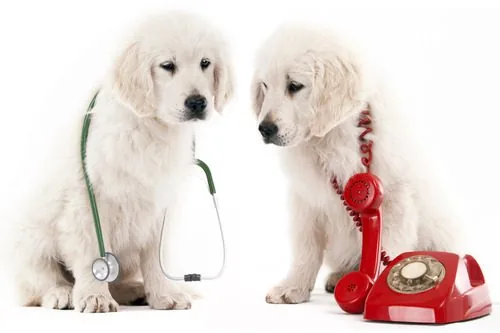When To Seek Urgent Care for Your Pet
As a pet owner, you do everything you can to keep your furry companion safe and healthy. But when unexpected health issues arise, it can be difficult to determine whether a situation requires urgent veterinary care. While some health concerns can wait for a scheduled appointment, others demand immediate attention. At Parrish Veterinary Clinic & Urgent Care, we are here to help you navigate urgent situations involving your pet. If you suspect your pet needs urgent care, call us at (941) 216-2335.

Does My Pet Need Urgent Care?
Recognizing the signs of a pet emergency is essential for getting them the care they need. If your pet exhibits any of the following symptoms, seeking urgent veterinary care is recommended:
- Difficulty breathing or choking on an object
- Uncontrolled bleeding or large open wounds
- Repeated vomiting or diarrhea, especially with blood
- Sudden collapse or loss of consciousness
- Seizures, even if it’s the first occurrence
- Ingestion of toxic substances, such as chocolate, antifreeze, or medications
- Signs of extreme pain, such as whining, panting, or aggression
- Bloated or distended abdomen, which can indicate a life-threatening condition called bloat
- Trouble urinating or defecating
- Heatstroke symptoms, including excessive panting, drooling, or weakness
If you notice any of these symptoms in your pet, do not wait. Contact Parrish Veterinary Clinic & Urgent Care at (941) 216-2335 for immediate assistance.
When Sudden Illness Requires Urgent Care
Pets can develop sudden illnesses that may require urgent attention. While some minor symptoms can be monitored at home, others warrant a trip to an urgent care facility.
Severe Vomiting and Diarrhea
Occasional vomiting or diarrhea may not be alarming, but if your pet is repeatedly vomiting or has persistent diarrhea, they could become dangerously dehydrated. If you notice blood in their vomit or stool, it could indicate a serious condition such as internal bleeding, poisoning, or a gastrointestinal infection.
Fever and Lethargy
If your pet has a high fever (above 103°F), appears extremely lethargic, or refuses to eat or drink, it could indicate an underlying infection or illness. Fever paired with other symptoms, such as vomiting, difficulty breathing, or swelling, requires immediate veterinary evaluation.
Respiratory Distress
Any signs of difficulty breathing, wheezing, or excessive coughing should be taken seriously. Respiratory distress can indicate heart disease, pneumonia, allergic reactions, or even a foreign object lodged in the throat. If your pet is struggling to breathe, seek urgent care immediately.
Injuries That Require Immediate Veterinary Attention
Pets are naturally curious and energetic, which can sometimes lead to injuries that require urgent care. Some of the most common injuries that warrant immediate veterinary attention include:
Traumatic Injuries
If your pet has been hit by a car, fallen from a significant height, or experienced a blunt force injury, they should be examined by your veterinarian as soon as possible. Even if they appear fine, internal injuries could be present and may not show symptoms right away.
Bite Wounds and Lacerations
Bites from other animals, deep cuts, or puncture wounds can quickly become infected. If your pet sustains a bite wound or deep laceration, seek urgent veterinary care to prevent infection and properly clean the wound.
Broken Bones and Limping
If your pet is unable to put weight on a limb, shows signs of extreme pain, or has an obvious fracture, they need urgent veterinary care. Broken bones, dislocations, and ligament injuries require prompt treatment to prevent complications.
Potentially Life-Threatening Conditions
Some conditions can rapidly become life-threatening without immediate veterinary care. If you suspect your pet is suffering from any of the following, do not wait to seek urgent care:
Bloat (Gastric Dilatation-Volvulus)
Bloat, or gastric dilatation-volvulus (GDV), is a life-threatening emergency that commonly affects large, deep-chested dog breeds. Signs include a swollen abdomen, excessive drooling, restlessness, and unsuccessful attempts to vomit. Immediate veterinary care is required to prevent fatal complications.
Seizures and Neurological Issues
If your pet experiences a seizure, especially for the first time, it is crucial to seek veterinary care. Seizures can result from epilepsy, toxins, or underlying neurological conditions. Multiple seizures in a short period, known as cluster seizures, require emergency intervention.
Poisoning and Toxic Ingestion
Pets are naturally curious and may ingest toxic substances such as human medications, household cleaners, or certain foods like grapes and onions. If you suspect your pet has consumed something toxic, contact an urgent care veterinarian immediately.
What To Expect During an Urgent Care Visit
When you bring your pet to Parrish Veterinary Clinic & Urgent Care, our team will work quickly to assess their condition and provide necessary treatment. Here’s what you can expect:
- Initial Examination – Your veterinarian will perform a thorough physical exam and ask about your pet’s symptoms and medical history.
- Diagnostic Testing – Depending on the issue, your pet may need bloodwork, X-rays, or ultrasound to determine the cause of their symptoms.
- Immediate Treatment – Your pet may receive IV fluids, pain management, wound care, or other urgent treatments based on their condition.
- Hospitalization or Home Care – In some cases, your pet may need to stay for monitoring, while others can return home with prescribed medications and care instructions.
Your pet depends on you to recognize when something isn’t right. Being prepared and knowing when to seek urgent care for your pet can make all the difference in a critical situation. Whether your pet experiences a sudden illness, injury, or emergency, Parrish Veterinary Clinic & Urgent Care can diagnose and treat your pet’s condition. If your pet is showing signs of distress or requires immediate attention, contact us at (941) 216-2335. Our dedicated veterinary team is ready to provide the urgent care your pet needs to recover safely and comfortably.
